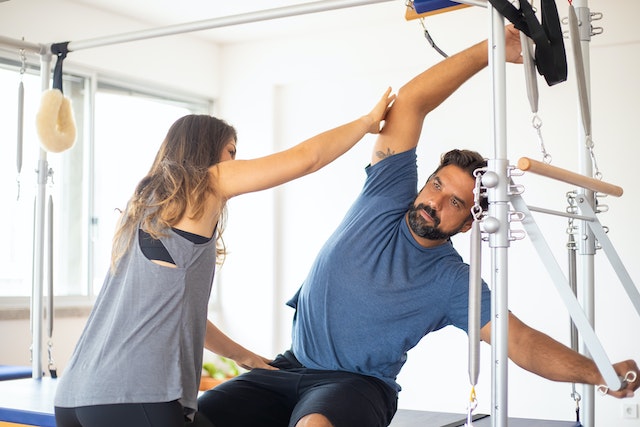Recovering from an injury or illness can be a challenging and arduous journey. It requires determination, patience, and the right tools to regain your strength and functionality. This is where rehabilitation training comes into play, offering a structured program that assists individuals in restoring their physical and mental well-being. In this article, we will delve into the benefits of rehabilitation training and how it can empower you to unlock your full potential.
1. Enhancing Physical Strength and Mobility
One of the primary goals of rehabilitation training is to enhance physical strength and mobility. Through targeted exercises and techniques, individuals can rebuild their muscles, improve flexibility, and regain their range of motion. Whether you’re recovering from a sports injury, surgery, or a debilitating condition, rehabilitation training can help you regain control over your body and restore your ability to perform daily activities with ease.
2. Pain Management and Relief
Chronic pain can significantly impact one’s quality of life, making even simple tasks seem insurmountable. Rehabilitation training incorporates various pain management strategies to alleviate discomfort and enhance overall well-being. Therapeutic exercises, manual therapy, and specialized techniques are employed to target the source of pain and provide relief. By addressing pain and discomfort, rehabilitation training empowers individuals to lead a more fulfilling and active lifestyle.
3. Restoring Independence and Functionality
The loss of independence and functionality can be disheartening and demoralizing. Rehabilitation training aims to restore these essential aspects of life by focusing on activities of daily living (ADLs). ADL training helps individuals regain the skills necessary to perform routine tasks such as dressing, bathing, and eating independently. By restoring independence and functionality, rehabilitation training allows individuals to reclaim control over their lives and improve their overall well-being.
4. Psychological and Emotional Well-being
Physical rehabilitation is not solely about restoring the body; it also addresses the psychological and emotional well-being of individuals. Coping with an injury or illness can take a toll on one’s mental state, leading to feelings of frustration, anxiety, and even depression. Rehabilitation training offers a holistic approach by incorporating psychological support, counseling, and motivational techniques. These elements help individuals overcome emotional barriers, boost their self-confidence, and cultivate a positive mindset, leading to an improved overall well-being.
5. Preventing Recurrence and Future Injuries
Rehabilitation training goes beyond recovery; it focuses on preventing recurrence and future injuries. By identifying weak areas and addressing them through targeted exercises and education, individuals can significantly reduce the risk of reinjury. Rehabilitation professionals provide guidance on proper body mechanics, ergonomics, and lifestyle modifications to ensure long-term success. By incorporating preventive measures, rehabilitation training empowers individuals to lead a healthier and more active lifestyle.
In conclusion, rehabilitation training offers a comprehensive and structured approach to recovery, focusing on enhancing physical strength, managing pain, restoring independence, and promoting psychological well-being. By undergoing rehabilitation training, individuals can regain control over their lives, unlock their full potential, and enjoy an improved quality of life. Embrace the power of rehabilitation training and embark on a transformative journey towards a healthier, happier you.
